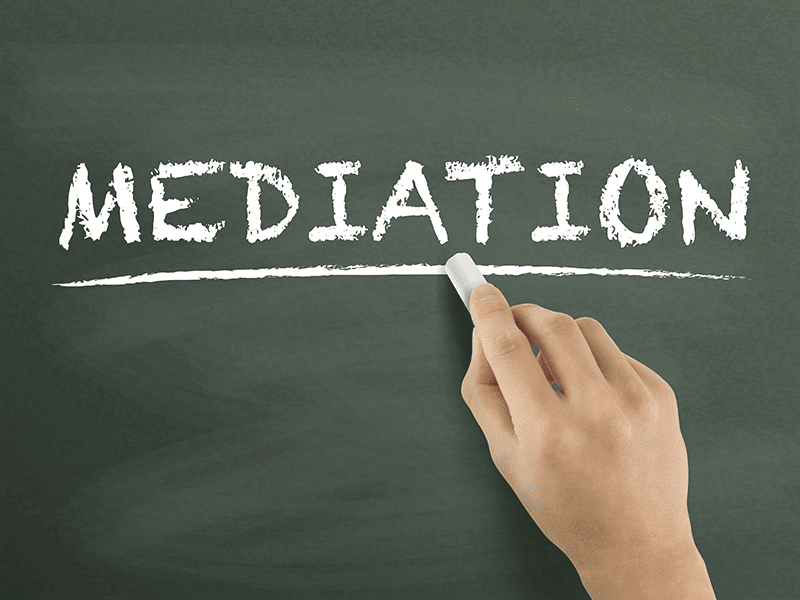
Mediation is a form of alternative dispute resolution whereby a neutral third party facilitates an agreement between the parties. It is a shorter and cheaper way to settle a dispute than litigation, and has the benefit of giving the parties full control of the outcome. It does, however, require parties to compromise. Unlike civil litigation, mediation is not an adversarial process; rather, the focus is on compromise. Mediation is a viable option in personal injury cases in Georgia.
Deciding if Mediation is Right for Your Personal Injury Case
The biggest reason to choose mediation is that it avoids expensive and lengthy litigation. The cost of court fees, expert witnesses, and other litigation costs can be significant. And, the expense of litigation is generally not compensable as a part of the damages in a case unless “the defendant has acted in bad faith, has been stubbornly litigious, or has caused the plaintiff unnecessary trouble and expense.”
Mediation is also attractive because trials can be unpredictable. Mediation takes away the uncertainty of a jury or bench trial and lets the parties control the outcome. They can also take into account nuances and subtleties in the facts and the parties’ interests that would be lost at trial.
Finally, mediation is relatively risk-free. When a personal injury victim has an excellent case, they can always reject any settlement offers made during mediation and continue on towards trial instead. If you have been injured due to the wrongful actions of another, the attorneys at Williams Elleby Howard & Easter, can help you understand whether mediation is a good option for you.
Choosing When to Mediate
When the facts of a case are clear, it may be the case that both parties will be willing to mediate a claim right away. But in many personal injury cases, it isn’t clear whether mediation is the right choice until after the discovery phase has occurred and all of the relevant evidence is uncovered. At this point, each party has a good idea of how the case is likely to go, and they are thus in a better position to decide whether they want to take the risk of trial.
When a personal injury victim has a solid case, they will often choose to wait until after the summary judgment stage before agreeing to mediation, because after a claim survives this stage the final settlement value of the case will rise. Conversely, if the plaintiff’s claim is more questionable, a plaintiff may be eager to reach a settlement before reaching the summary judgment stage. Ultimately, an experienced personal injury attorney can determine when during the process mediation would be appropriate.
Choosing a Mediator
When parties agree to mediate, they are free to agree to any trusted third party they would like to act as their mediator. A personal injury mediator should be a practicing or retired attorney that understands Georgia tort law. The Georgia Commission on Dispute Resolution can help parties find a mediator. There are also private mediation firms with many excellent mediators. Three of the most popular in Georgia are Henning Mediation & Arbitration Service Inc. (https://www.henningmediation.com), Bay Mediation & Arbitration Services (https://www.bayadr.com), and Miles Mediation & Arbitration Services (https://milesmediation.com) . In other cases, the parties can request that the judge appoint a mediator.
Presenting Position Papers
The first step in mediation is to present the other side with a summary of your claim in the form of a position paper. This can also be a formal settlement demand. The mediator should also be given a copy of this document. A plaintiff’s position paper will address the merits of the claim and state the damages that are being demanded. A defendant may also have a position paper prepared.
Negotiating in a Joint-Session
After position papers have been presented and read, each side will explain their case. The purpose of this joint-session meeting is to make sure that each side fully understands the perspective and legal arguments of the other side. The mediator will objectively explain to both parties the likely outcome of a trial.
Holding Private Meetings as Needed
Following the initial joint-session meeting, the mediator will privately discuss with each side the strengths and weaknesses of their case. Any information learned by the mediator in these private sessions should remain confidential. The mediator will go back and forth as needed, acting as an intermediary to broker a compromise between the parties.
Reaching an Agreement
When the mediator feels that the parties are close to reaching a final agreement, the parties will come together again to discuss and then sign a settlement agreement. Most mediations can be completed in a few hours and take place in a single day.
If You Think You May Have a Personal Injury Claim, Contact Williams Elleby Howard & Easter, to Discuss Your Case
If you have been injured in an accident and would like to schedule a free consultation to discuss your case, call Williams Elleby Howard & Easter, at 833-LEGALGA today.





